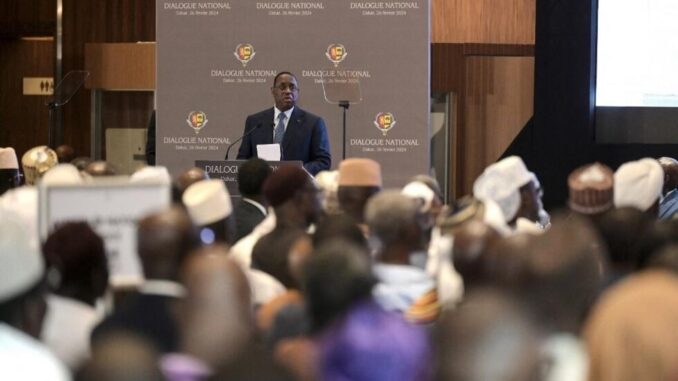
Senegal is grappling with a political crisis triggered by President Macky Sall’s attempt to postpone the February 25 elections to December. In response to this turmoil, a national dialogue panel has suggested holding the elections on June 2, marking the first such proposal since Sall’s controversial decision.
Sall, in his second term and committed not to seek reelection, initially announced the postponement in early February. However, the Constitutional Council, Senegal’s highest election authority, rejected this move and directed the government to promptly set a new election date.
The panel convened during a two-day national dialogue, initiated by Sall to build trust among candidates and the public. Despite the participation of civil, political, and religious leaders, most ballot candidates declined involvement. Amidst this, the panel recommended the June 2 election date. Sall has pledged to step down by April 2, the end of his current term, but the successor remains uncertain if elections are not conducted by then. Ndiawar Paye, a panel member, suggested that Sall stay in office until his successor is sworn in.
The election delay has led to deadly protests across Senegal, a country typically viewed as a stable democracy in a coup-prone region. Security forces’ actions have resulted in at least three deaths and numerous injuries. The panel also urged the Constitutional Council to review decisions barring candidates, including Karim Wade, an opposition leader and the son of former President Abdoulaye Wade, from participating. Wade was disqualified due to previous dual citizenship, a status he renounced to run.
Sall, while defending the election delay, accepted the Constitutional Council’s ruling and proposed a general amnesty law to address the protests and subsequent detentions. The scope of this amnesty, particularly regarding the jailed opposition leader Ousmane Sonko, remains uncertain.
